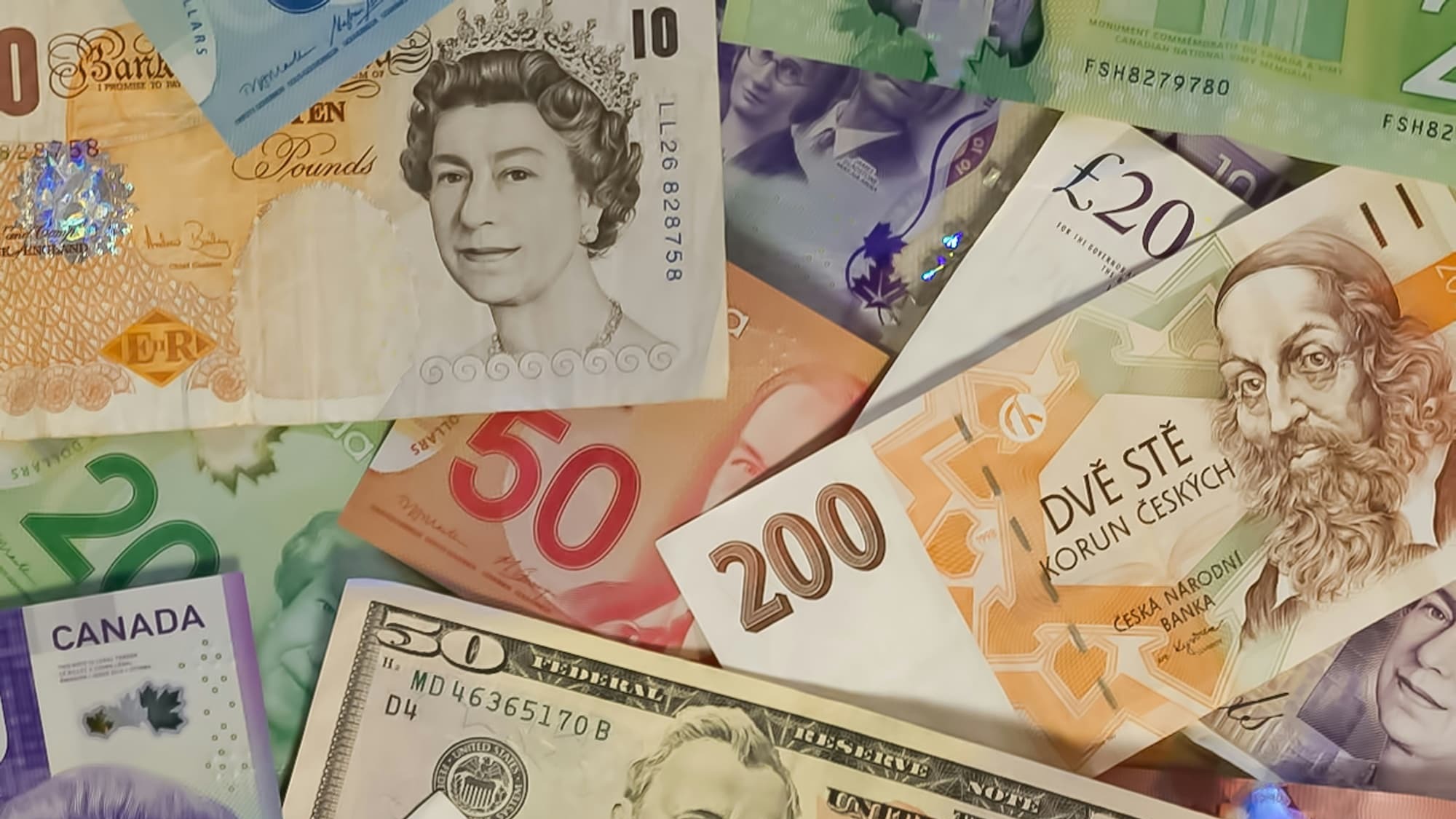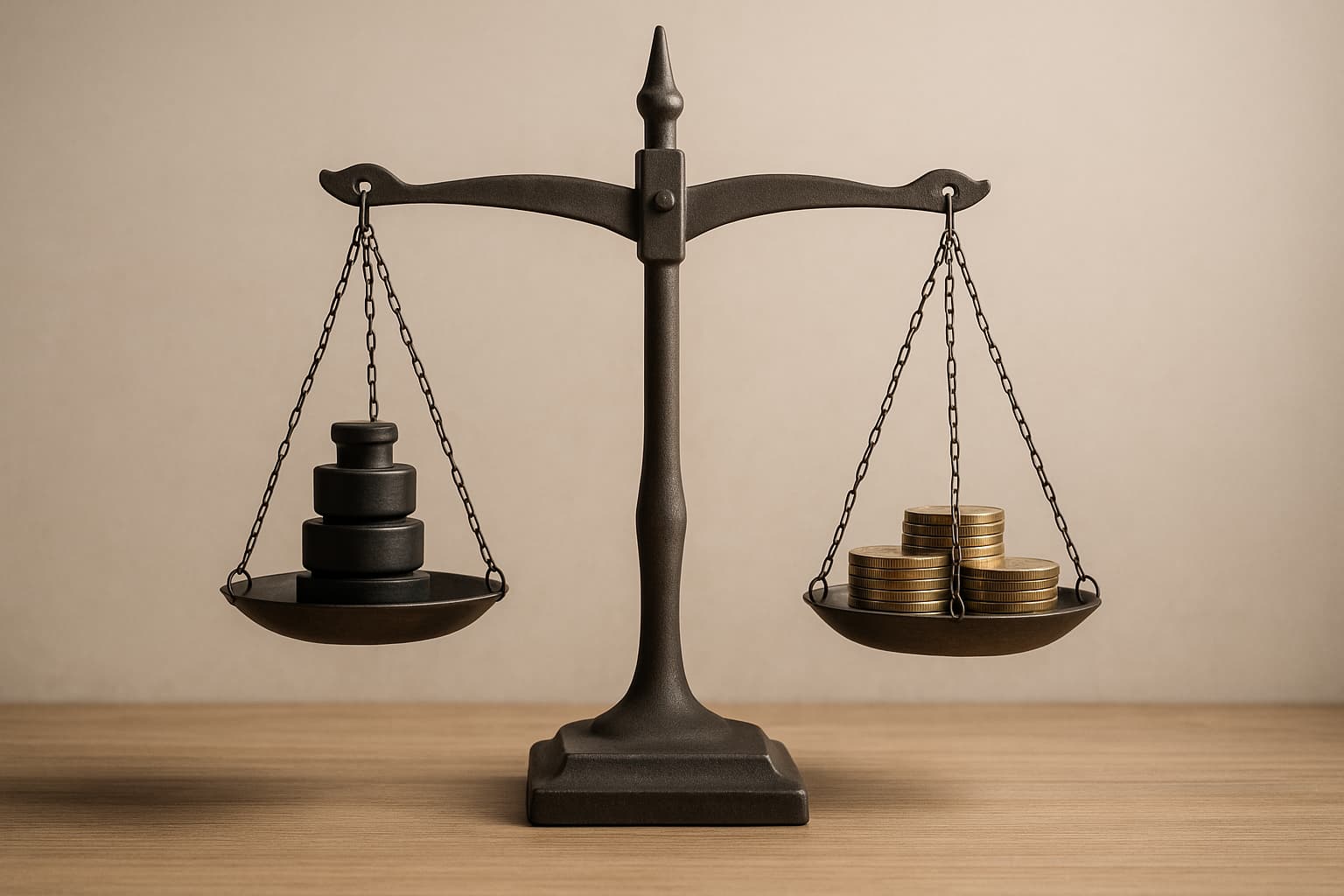 Your Money
Your Money Best fintech for cross-border payments in 2026
Discover which fintech app is best for borderless transactions in 2026 with this quick comparison of total costs, speed, currencies, and methods.



The world's cheapest currencies reflect economies facing serious challenges. Among them, the Lebanese pound ranks as the lowest in value, notable for its weakening against the US dollar.
That is why the Lebanese pound tops our list today, followed by the Iranian rial and eight other currencies. We also explain how the cheapest currencies are identified and the reasons why they lose their value.
It is determined by evaluating its exchange value against more stable currencies, such as the euro or the dollar. This reflects the currency's ability to purchase goods and services on the international market.
Currency devaluation usually occurs due to a number of factors, such as poor economic management or high inflation. Conditions like these reduce confidence in the currency, causing a sharp drop in its value against stronger currencies.
Therefore, the cheapest currency is the one that requires the most units to equal a stable currency.
The Lebanese pound (LBP) represents the economy of Lebanon, a country undergoing a prolonged financial crisis. This is why it currently ranks lowest among global currencies.
This is partly due to the 2019 crisis and the 2020 default, coupled with a loss of confidence in the banking system.
Before these events, the parity remained virtually fixed with the dollar. But after the crisis, the exchange rate multiplied and the economy became dollarized in many prices and contracts.
Unlike the most expensive currency, the nominal value of the Lebanese pound is the lowest when compared to the dollar. This is the most significant reason why it is positioned as the cheapest currency in 2025.
However, it is important to note that certain factors have contributed to this, such as:
Collapse of the banking system and prolonged capital controls.
Sovereign default and debt crisis since 2020.
Persistent hyperinflation.
Multiple exchange rates.
De facto dollarization of prices and transactions.
Institutional fragility and dependence on energy imports.
It should be noted that these factors combined have weakened the Lebanese pound since 2019.
If we talk about the currencies that have suffered the greatest percentage loss against the USD in 2025, the list is different.
Here is a list of the five most devalued currencies in the world in 2025:
Venezuelan bolivar (VES): -51%.
South Sudanese pound (SSP): depreciation of nearly 136% in just one year.
Argentine peso (ARS): -10-12%.
Turkish lira (TRY): worst performing emerging market currency.
Libyan dinar (LYD): -13.3%.
These currencies have experienced significant depreciation in value against the dollar so far in 2025. However, this depends on the period and the exchange rate used (official or parallel).
Below is a ranking of the 10 cheapest currencies in the world and the reasons behind them.

The Lebanese pound tops the list due to a combination of factors that have affected its value against the dollar. For example, the financial collapse and prolonged recession, which triggered inflation.

The Iranian rial has been affected by international sanctions that limit trade. However, political instability and hyperinflation are also reasons for the significant deterioration in its value.

The Vietnamese dong, Vietnam's currency, is among the cheapest currencies despite its economic growth. This is due to the slow transition to a market economy and barriers to attracting foreign investment.

The Lao kip’s decline is driven by a low level of foreign investment and reliance on resource exports. This is exacerbated by persistent inflation and limited trade volumes.

Serious economic and social challenges in Sierra Leone have weakened its currency. Dependence on mineral resources, healthcare crises, and high inflation have accelerated the leone’s devaluation.

Much of Cambodia’s economy runs on US dollars, leaving the riel stuck as a weak currency. Additionally, its global competitiveness is limited by lack of economic diversification.

Its weakness stems from exporting goods of low added value, along with an agriculture-dependent economy. Inflation and price swings also affect its stability.

The rupiah faces pressure from Indonesia’s heavy dependence on commodity exports and shrinking foreign currency reserves, along with substantial vulnerability in external investments.

The Uzbek som is one of the cheapest currencies due to a transitioning economy with inadequate reforms. A weak industrial base and structural issues such as inflation and unemployment worsen the situation.

Various combined factors keep the franc among the world’s weakest currencies. Recurring political instability, unfavorable socioeconomic conditions, and poor management hamper Guinea’s sustainable growth.
The Cheapest Currencies and Their Value in USD:
Currency | Code | Country | Value per unit in USD |
2. Lebanese pound | LBP | Lebanon | 1 LBP = 0,000011150 USD |
2. Iranian Rial | IRR | Iran | 1 IRR = $0.000023724 USD |
3. Vietnamese Dong | VND | Vietnam | 1 VND = $0.000037910 USD |
4. Sierra Leonean Leone | SLL | Sierra Leone | 1 SLL = $0.000043936 USD |
5. Lao Kip | LAK | Laos | 1 LAK = $0.000046185 USD |
6. Indonesian Rupiah | IDR | Indonesia | 1 IDR = $0.000060760 USD |
7. Uzbek Som | UZS | Uzbekistan | 1 UZS = $0.000080604 USD |
8. Ugandan Shilling | UGX | Uganda | 1 UGX = $0.000283906 USD |
9. Cambodian Riel | KHR | Cambodia | 1 KHR = $0.000249720 USD |
10. Guinean Franc | GNF | Guinea | 1 GNF = $0.000115265 USD |
Exchange rates from September 04, 2025 according to xe.com’s converter.
Currencies lose value both from internal issues and global factors, and decisions can also impact confidence in their stability.
Key reasons behind this phenomenon:
Inflation. When a country’s inflation exceeds that of its trade partners, its goods and services become more expensive and less competitive, thus weakening its currency.
Instability. Political crises generate uncertainty and distrust among investors, leading to capital flight that pushes down the currency’s value.
Trade balance deficits. If a country imports more than it exports, the demand for foreign currency grows, weakening its own currency.
Low interest rates. These can reduce foreign investment due to lower returns.
Speculation. Negative perceptions about a currency can spark massive sell-offs in the markets, accelerating devaluation.
Moreover, external factors can trigger sudden depreciations, such as a global crisis, commodity price shifts, or natural disasters in the country.
The world’s cheapest currencies share similar traits, though each case has its nuances. If you look closely, high inflation, certain economic policies, or dependence on vulnerable economic sectors are common. But there are other factors as well, such as fluctuation in commodity prices, that contribute to their depreciation.
So it’s a mix of internal and external problems.
Despite their low value in global markets, these currencies remain in use in their local economies. Everyday transactions—like writing checks or sending money transfers—persist.
Still, you can explore other methods so your money isn’t exposed to these consequences. In that context, DolarApp becomes an innovative alternative for users in Mexico, Colombia, and Argentina.
With us, you can gain stability and convenience in the face of possible peso fluctuations, as you can operate with digital dollars and euros. Furthermore, you have the option to switch your balance from one currency to another directly in the app at a fair exchange rate.
The currency with the lowest nominal value per unit in 2025 is the Lebanese pound: 1 USD ≈ 89,500–90,000 LBP. Although the Iranian rial is trading at around 42,000 IRR per USD at the official rate, it is much higher on the free market.
The Kuwaiti dinar (KWD) continues to top the list of most expensive currencies in 2025. This has been the case for a long time thanks to the country's stable exchange rate regime and solid oil revenues.

The world has borders. Your finances don’t have to.
 Your Money
Your Money Discover which fintech app is best for borderless transactions in 2026 with this quick comparison of total costs, speed, currencies, and methods.

 Your Money
Your Money The most stable currency in the world has managed to withstand crises, inflation, and political uncertainty. Discover which one it is and other stable currencies.

 Your Money
Your Money Investing is transforming your current money into a more valuable resource in the future. Discover the types of investments and how to start now.


